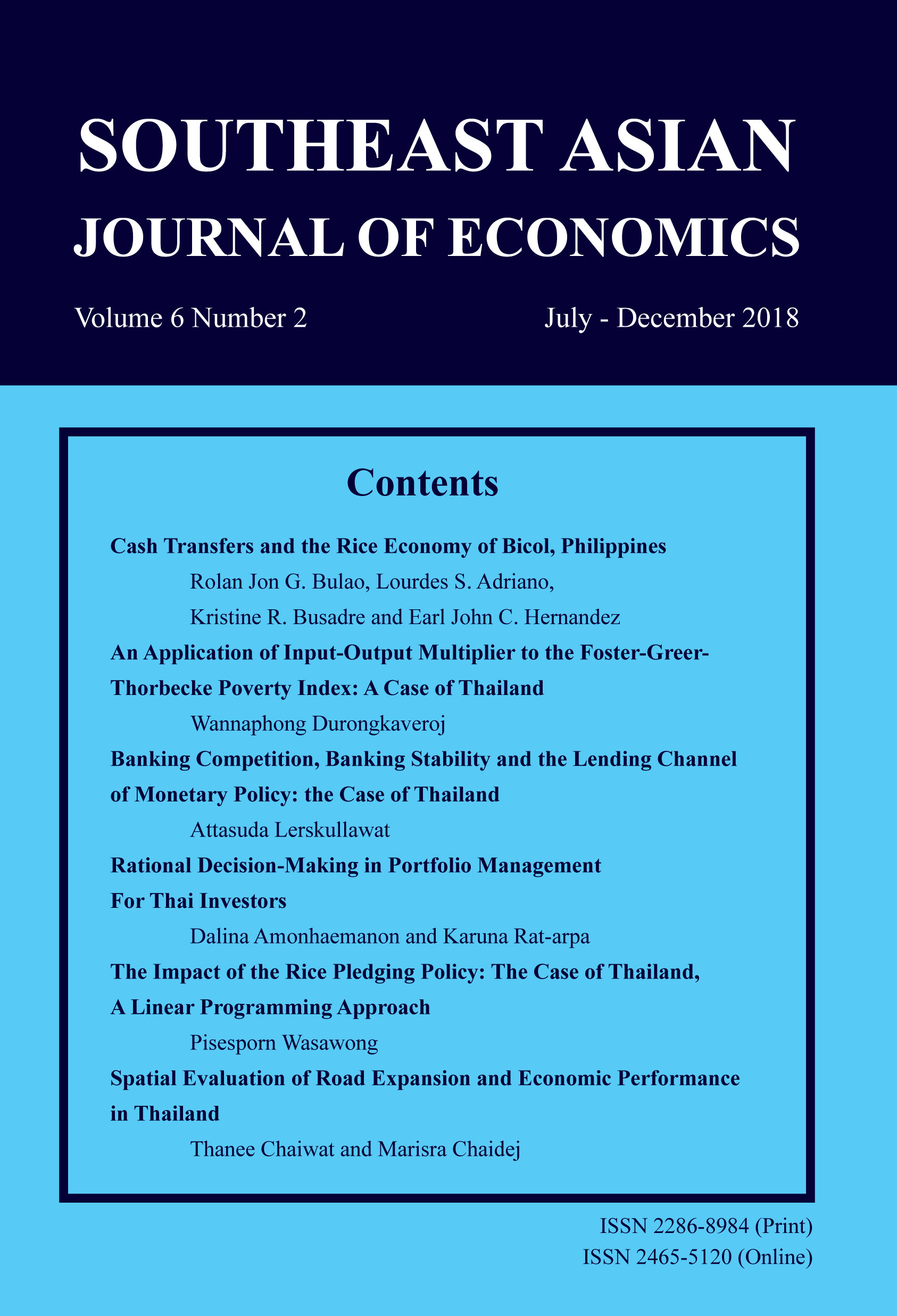The Impact of the Rice Pledging Policy: The Case of Thailand, A Linear Programming Approach
Keywords:
Rice Farmer, Rice Industry, Rice Pledging Policy, Linear ProgrammingAbstract
The rice pledging policies had an enormous effect on the rice industry in Thailand as well as changing the political course of the kingdom. This study employs a Linear Programming technique to construct a model based on the operational concept of value chains of the Thai rice industry in both normal and pledging cases. The data and information from many sources are combined in the analysis. The paper compares the total and each party’s profit from these two scenarios. The results found that the combined profit of all parties; farmers, large and small millers, traders and the government, is higher in the pledging case. However, only farmers and millers enjoyed the benefit, while the traders and the government, which represents the non-rice industry tax payers, lost from the program. This model can be extended in many ways, such as finding the impacts for large and small farmers, or the effects of alternative policies such as price guarantees. The recommendations are that the government can run this policy but must be aware of the effect on traders. Moreover, there are alternative policies that can help the farming sector, for example, providing optimized growing information to the farmer.
Downloads
Published
How to Cite
Issue
Section
License
The submission of a manuscript implies that the paper is an original work and has not been published elsewhere. The author(s) authorize the journal to reproduce or distribute the paper in printed or other electronic forms.







